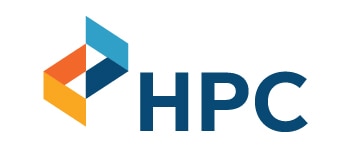- Massachusetts Health Policy Commission
Media Contact for NEW DATA SHOW POSITIVE IMPACT OF INNOVATIVE PROGRAMS FOR OPIOID-EXPOSED NEWBORNS, HOSPITALS
Matthew Kitsos, Press Secretary
Boston — Monday, September 30, 2019 – Today, the Massachusetts Health Policy Commission (HPC) released a new DataPoints issue examining the prevalence of Neonatal Abstinence Syndrome (NAS) in Massachusetts, and highlighting outcomes associated with the HPC’s Mother and Infant-Focused NAS Interventions to improve care for mothers and infants affected by opioid use disorder (OUD). This program has shown significant promise as the Commonwealth seeks better, more cost-effective care for mothers and infants, and the new analysis of its impact builds on recent work the HPC has released about the impact of the opioid crisis on Massachusetts residents, including the 2019 Opioid-Related Acute Hospital Utilization Chartpack, and the 2016 Opioid Use Disorder Report.
Neonatal Abstinence Syndrome (NAS) is a clinical condition that can affect a subset of infants with prenatal exposure to opioids. Symptoms can include low birth weight, respiratory distress, feeding difficulty, tremors, increased irritability and crying, diarrhea, and, occasionally, seizures. Coinciding with the rise of the opioid crisis in Massachusetts, prenatal substance exposure and diagnoses of NAS have increased since 2010, nearly doubling between 2010 and 2017. In 2014, eight infants per 1,000 hospital births in the U.S. were diagnosed with NAS, while in Massachusetts the number was two times greater, with 16.3 infants diagnosed with NAS per 1,000 hospital births. In 2017, the latest year for which data was available, the number of infants diagnosed with NAS per 1,000 hospital births in Massachusetts decreased slightly, to 15.9.
“Supporting innovative care delivery models that enhance the quality and effectiveness of care has been and will continue to be a top priority for the Health Policy Commission. In 2016, the HPC invested in six hospital-based initiatives to improve care and treatment options for mothers and infants affected by opioids,” said David Seltz, HPC Executive Director. “The data released today shows that these programs have made a real difference in their communities, and have had a positive impact for the mothers and infants served across the Commonwealth. The HPC will continue to work with its state, local, and community partners to address this important issue.”
Care for infants with NAS can be complex and costly, as infants diagnosed with NAS have typically required admission to a neonatal intensive care unit (NICU) or special care nursery for observation of symptoms and administration of pharmacotherapy. Nationally, infants born with NAS were admitted for an inpatient stay after birth averaging 16.9 days in 2012, with a mean hospital charge of $66,700. In comparison, the mean hospital charge for an uncomplicated term infant birth was $3,500. As part of the state’s efforts to address the issue, the HPC launched the Mother and Infant-Focused NAS Interventions as a component of its Health Care Innovation Investment (HCII) program, to further test and accelerate the adoption of evidence-based interventions and emerging best practices to treat mothers and infants impacted by OUD.
“This work shows that we can make real and important improvements in the care of infants at risk for developing NAS. By partnering with families early and focusing on non-pharmacologic care, these hospital teams have taken the support of the HPC and changed the way we think about NAS,” said Dr. Munish Gupta, a neonatologist and the Chair of the Neonatal Quality Improvement Collaborative (NeoQIC), which provided technical assistance to the six hospitals funded through the HPC’s NAS Interventions. “This program is a great example of how collaboration between the state and hospitals can improve care for families throughout Massachusetts.”
Key outcomes from hospitals awarded HPC funding include:
- Hospitals have seen a 53% reduction in median hospital length of stay for infants. Median length of stay decreased from 17 days to 8 days over the 24 months following the launch of the program.
- Hospitals identified a reduced need for pharmacologic therapy. Need for pharmacologic therapy decreased significantly from 66% of infants to 42% of infants, as a result of the enhanced non-pharmacologic care methods deployed by these initiatives.
- Infants requiring care in the NICU decreased by 23%. Due to the decrease in pharmacologic therapy, which is often administered in the NICU, hospitals decreased the percentage of infants needing care in the NICU or special care nursery.
- Enhanced non-pharmacologic care for opioid-exposed newborns could have significant implications for cost savings. Shorter length of stay and a decreased reliance on the NICU or special care nursery could have an impact on the cost of care for this population.
Read the DataPoints issue here, and find a printable PDF version of the brief here.
###
